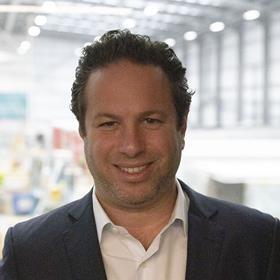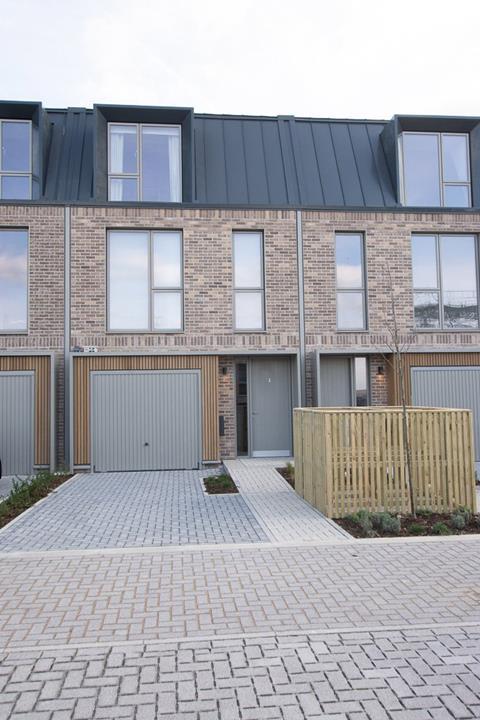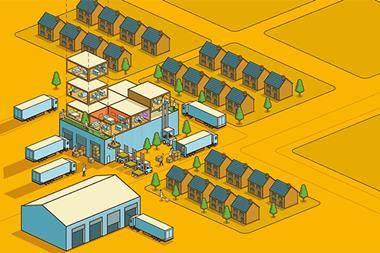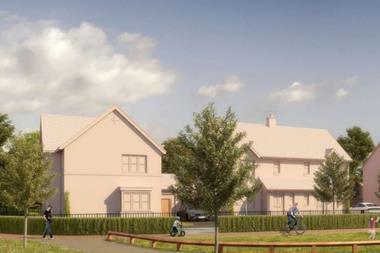New York-native Jordan Rosenhaus, founder of TopHat, believes technology can not only design better homes, but help developers and local authorities get along better. Manufactured housing could become mainstream, he believes, by using cloud-based platforms to shape the design and manufacture of homes to fit flexibly with existing local architecture. Despite its sizeable backing from Goldman Sachs, Rosenhaus remains grounded and modest, but you get the impression that TopHat is only just getting started.

TopHat’s founder couldn’t care less that the stereotypical image of modular homes has long been “identikit homes dropped into an area without any thought to urban planning”. Things have changed considerably. He says that new technology enabling homes to be manufactured on a production line, can enable buyers to choose the kind of home they want. After all, you can do it with a car or even a wardrobe.
On the latest PropCast in our series on modern methods of construction (MMC), Jordan Rosenhaus, CEO of TopHat, spoke to Andrew Teacher, founder at Blackstock Consulting, about how the UK-based firm puts technology at the heart of its product, and why this method could empower local authorities in a revitalised housing delivery push.
You can listen to today’s podcast via Apple Podcasts or Spotify or SoundCloud or through the player below.
TopHat’s groundbreaking technology-enabled modular manufacturing process can build homes that are fully customisable by the buyer. And better-still, they can allow councils to have full confidence around quality, fire safety, sustainability and, above all, design.

The company is backing the national Homes for Heroes campaign, launched this week by a collective of the country’s biggest housing associations, architects and developers. Backers include Notting Hill Genesis, Metropolitan Thames Valley, Network Housing, Places for People, investors such as Legal and General plus the British Property Federation and G15. The campaign wants to build modular homes for key workers in partnership with housing associations and public land owners.
“The public and private sectors should come together to solve the need for essential housing. This is also about job creation and better standards of living for everyone,” Rosenhaus says.
“Britain’s building sector has the opportunity to embrace technology and to manufacture higher quality, better designed houses, that can be a global inspiration. TopHat is delighted to back this campaign and we look forward to collaborating with Government, housing associations and private investors to give heroes the housing they deserve.”
In the podcast, Rosenhaus says that his firm had to develop all new supply chains to ensure that every step of the process is replicable - and scalable. The American entrepreneur gets most animated gushing about his solution to a very British addiction: bricks. With a system that turns brick dust into denser, safer and less porous bricks of any shape and texture, TopHat believes this could be a game-changer in convincing cynics.
And when you see the sheer quality of what they’re producing, you too will understand why he’s prepared to let anyone take the Pepsi Challenge comparing standard facards with TopHat’s 3D-printed variety.
As the offsite manufacturing sector continues to mature, Rosenhaus sees this process being replicated across the market. The sector shouldn’t be compared to other industries like car manufacturing just yet, because they have had decades to get these supply chains in order, but that’s the direction everything is moving, according to Rosenhaus.
Because of this, Rosenhaus argues that modular housing could be the tool that enables a new era of local-authority driven housing development.
“Modular housing can bridge the gap between what is being built and what needs to be built,” says Rosenhaus.
If developers focus on their shared aims with local authorities, rather than fixating on snags in the process, then the entire process will run more smoothly, argues Rosenhaus. “We want to be in this with a local authority and we want them to love the homes as much as we do.”
And with a standardised production and construction process, local authorities do not need to worry about their reputation being attached to a substandard product. Local Authorities can also be involved in the design phase, ensuring that any new housing fits the characteristics of the local area, and is right for the local community.
“There’s no reason we can’t have a configuration portal like you’d find on any major car website,” says Rosenhaus.
Jordan Rosenhaus is CEO of TopHat
You can listen to today’s podcast via Apple Podcasts or Spotify or SoundCloud or through the player above. This podcast was produced by Blackstock Consulting founder Andrew Teacher and you can Tweet your views @andrewjteacher
Join the debate and hear more at the RESI Convention www.resiconf.com organised by Property Week.
LISTEN TO PREVIOUS EPISODES:
- Episode 1: Rosie Toogood, Legal & General Modular Homes - Apple Podcasts, Spotify and SoundCloud
- Episode 2: Dave Sheridan, ilke Homes - Apple Podcasts, Spotify and SoundCloud
- Episode 3: Harry Swales, Homes England - Apple Podcasts, Spotify and SoundCloud
- Episode 4: Joseph Daniels, Project Etopia - Apple Podcasts, Spotify and SoundCloud
- Episode 5: Céire O’Rourke, Laing O’Rourke - Apple Podcasts, Spotify and SoundCloud





























No comments yet